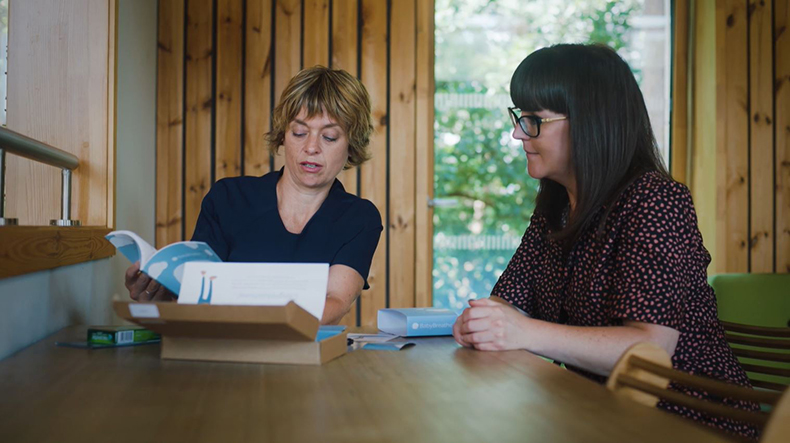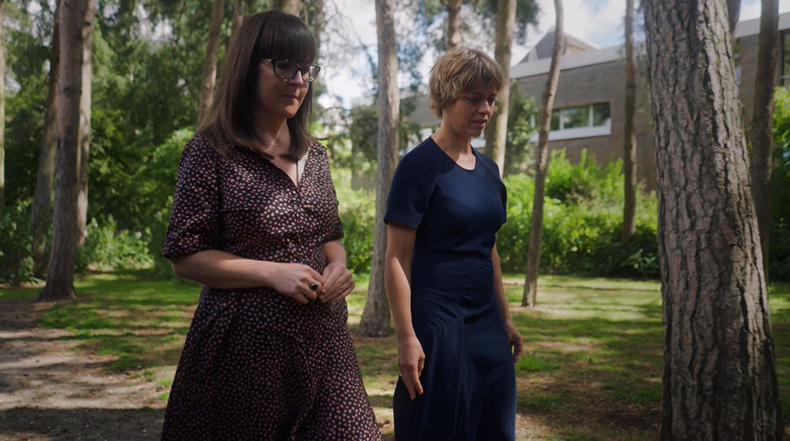)
For many people who smoke, having a baby is often a watershed moment, offering a powerful reason to kick the habit. But, explains Caitlin Notley, Professor of Addiction Sciences at Norwich Medical School, UEA, about 75 per cent of those who quit smoking in pregnancy relapse after the birth of their baby.
Most don’t feel that they are at risk of going back to smoking, she explains, but the “really challenging time immediately postpartum" can present a lot of triggers.
“The risk of relapse is high because it can be really difficult to maintain that positive behaviour change once the baby's born,” she explains. “When the foetus is growing inside, there is that motivation to keep it healthy, but people seem to care less about their own health once the baby is born.
“It can also be about regaining a sense of who they are, how they saw themselves before they were pregnant, as a young, independent, fun person, where smoking might have been part of that. As a new parent you want to get back to that. It’s often heavily correlated with the time people go out and start having their first alcoholic drinks, unsurprisingly.”
The intervention
There has so far been very little research around relapse and relapse prevention for this group, so Prof Notley has secured funding to develop an intervention to support pregnant people to stay smoke-free. She worked with women and families to try to understand what sort of support might be helpful, before receiving further funding for a large trial, which currently has almost 800 participants enrolled, making it the biggest ever study of this group.
The programme, called BabyBreathe, is “very, very positive and extremely non-judgmental,” Prof Notley explains. People are not asked to justify or explain their smoking habits but are offered support and encouragement to maintain their quitting, something that many new mothers and parents are surprised not to receive already.
"We put all the emphasis on helping people to quit smoking in pregnancy, but as soon as that's happened, they are forgotten about. Often, we hear that it was never even mentioned again."
“These women and families don't have that support at all at the moment,” she says. "We put all the emphasis on helping people to quit smoking in pregnancy, but as soon as that's happened, they are forgotten about. Often, we hear that it was never even mentioned again.”

The BabyBreathe intervention begins towards the end of pregnancy, with an initial conversation with a health visitor. When the baby is born, a digital support programme kicks in, with an SMS system sending a mix of encouraging messages for staying smoke-free, theory-based hints and tips, and check-ins to see how new mothers are getting on. Families are also offered access to the BabyBreathe website and app, and are sent a BabyBreathe box, which contains non-judgemental health information and advice, and nicotine gum with advice on how to use it to prevent relapse.
“It’s things like keeping it in your handbag if you're going out,” Prof Notley says. "And there’s factual advice about e-cigarettes, dispelling some of the myths and concerns that people might have about using one, because if you're craving nicotine, it is a safer option than going back to tobacco smoking.” There is also reassurance that, even if they have a lapse, that doesn't necessarily mean they have to go back to smoking full time.
The key, Prof Notley explains, is that the support is bespoke and something that people can “dip in and out of” as needed. And it continues for 12 months after the birth of the baby, with messages decreasing over time.
The programme originally looked quite different, with far more face-to-face interaction with health visitors, but the Covid lockdowns meant that Prof Notley needed to redesign it for virtual and hybrid approaches. But the pandemic also offered a useful measure for testing the success of the programme: individual carbon monoxide breath tests.
“They were only just really developed at the beginning of the Covid lockdown,” Prof Notley explains. “With smoking studies, the gold-standard outcome is obviously smoking status and the best way to verify that is to get an objective measure, so within the study we were asking women to take a carbon monoxide breath test.
“Originally, we were going to ask health visitors to take those measures, but we had to adapt to think how we would do that remotely. So now we send women an individual use carbon monoxide monitor, which was an innovative way to make sure the trial still went ahead and got those objective measures.”

The trial will continue until August 2024, with the hope that, if proven effective and cost-effective, BabyBreathe could become part of usual care and rolled out across the NHS.
Delivering further smoking cessation support
In the meantime, Prof Notley and her colleagues are in the early stages of creating another smoking cessation support programme for expanding families, working with those who have babies in neo-natal intensive care (Nicu).
“Many families of babies admitted to Nicu are smokers,” she explains. “Either the mum has smoked in pregnancy or there's been household smoking, because that's one of the major risk factors for having a premature or low-birth-weight baby. But again, there's no support at all at the moment around smoking for families on Nicu and parents are often not even asked about their smoking status, which I found shocking.
"For parents in that situation, quitting smoking or maintaining a smoke-free home is one of the only things they can do to really change the baby's outcomes"
“But the work we’ve done with families during their Nicu stay has really shown that they are amenable to that support. They expect to be asked about smoking, they’re surprised that they're not, and they do want to change. And for parents in that situation, quitting smoking or maintaining a smoke-free home is one of the only things they can do to really change the baby's outcomes. There's breastfeeding and there's quitting smoking, and aside from that families can feel quite helpless at that time because obviously the baby has to be handed over to receive medical care.”
The new intervention, for which Prof Notley is currently seeking funding, involves a quick conversation with Nicu staff and the offer of support with nicotine replacement therapy, such as gum or e-cigarettes, offered on the unit. Plus, there is follow-up support through a website with information, advice and immersive videos specifically about the Nicu journey and the benefits of a smoke-free home for those vulnerable babies.
“It’s quite emotive to watch, but really engaging,” Prof Notley says. “I'm really excited about that because it’s using technology as part of a health intervention in a very new, innovative way. The package of support is digital and delivered by the professionals on the unit, in a light-touch, non-stigmatising way.”
